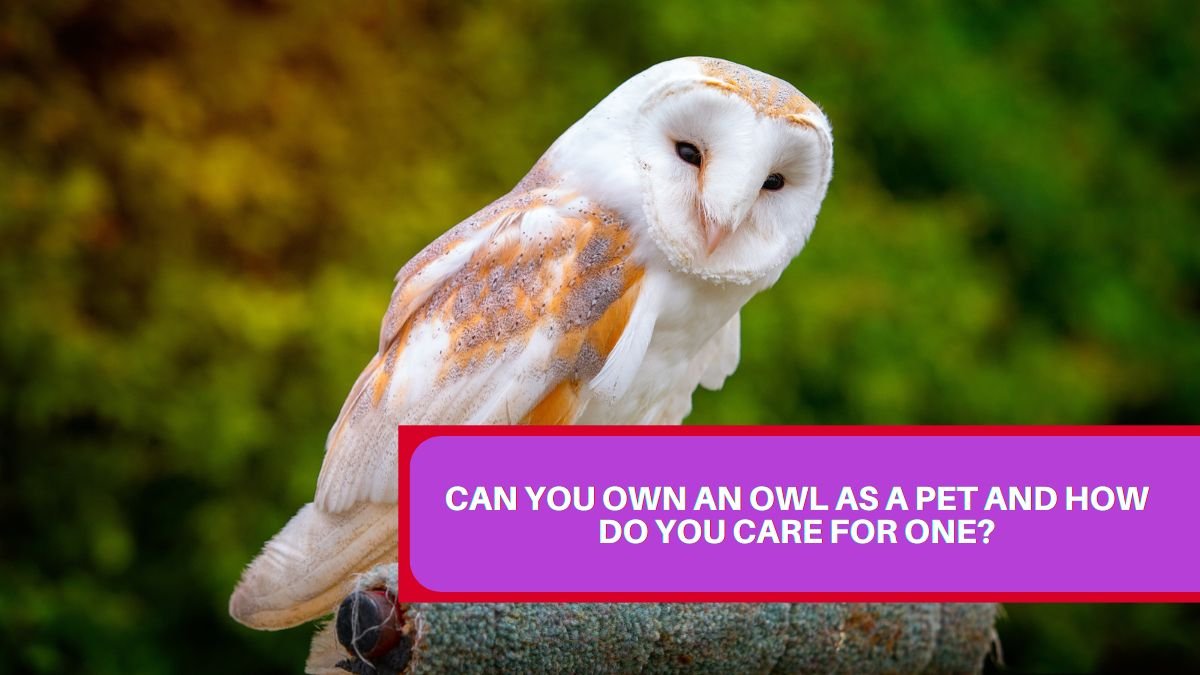Owls are fascinating creatures, often romanticized in literature and media as symbols of wisdom and mystery. Their striking appearance and nocturnal habits make them intriguing animals. However, the question arises: can you own an owl as a pet? The answer is nuanced and requires a thorough understanding of both legalities and the specific needs of these birds.
Legal Considerations
Before considering owl ownership, it’s essential to check your local laws and regulations. In many places, it is illegal to keep owls as pets due to their status as wild animals. In the United States, for example, the Migratory Bird Treaty Act prohibits the possession of native owl species without a special permit. These permits are typically granted only to licensed rehabilitators, educators, or researchers. Owning an owl can lead to significant legal consequences, including fines and confiscation of the bird.
Some states may allow ownership of non-native owl species or owls bred in captivity, but this also varies widely. Always consult your local wildlife agency or authority to ensure compliance with regulations.
The Challenges of Owl Care
Owls have unique needs that can make them unsuitable as pets for most people. Unlike domesticated animals such as cats and dogs, owls are not bred for companionship. They are wild birds with instincts and behaviors that reflect their natural habitat. Here are several considerations regarding the challenges of caring for an owl:
Space Requirements
Owls need ample space to fly and exercise. A standard pet cage is insufficient for their needs; they require large aviaries or enclosures that allow for flight. These enclosures must be tall and wide enough to accommodate their wingspan and allow for natural behaviors, including hunting and perching.
Diet
Owls are carnivorous and primarily feed on small mammals, birds, and insects. A proper diet is critical for their health and typically includes whole prey items like mice, rats, and day-old chicks. Feeding owls can be time-consuming, as it involves sourcing fresh or frozen prey, and care must be taken to ensure a balanced diet that meets their nutritional needs.
Socialization and Handling
Owls are solitary creatures and do not thrive on social interaction in the same way that domesticated animals do. They may tolerate handling, but their natural instincts often lead them to stress easily. Handling an owl too frequently can cause anxiety, which can negatively impact their health. Unlike pets that enjoy companionship, owls may not form bonds with their owners.
Nocturnal Behavior
Owls are primarily nocturnal, meaning they are most active at night. This behavioral trait may not align well with a human’s daily schedule. As such, an owl may be noisy during the night, which could disrupt household routines and lead to conflicts with neighbors.
Health Care
Owls require specialized veterinary care. Finding a vet experienced in treating raptors can be challenging, and not all veterinarians have the necessary skills to provide adequate care. Routine check-ups, vaccinations, and emergency care must be factored into the commitment of owl ownership.
Benefits of Owning an Owl
While the challenges are significant, some individuals are drawn to the idea of owning an owl for various reasons, including:
Education and Conservation
Owning an owl can offer unique opportunities for education and awareness about wildlife conservation. If done legally and ethically, some owners may use their birds for educational purposes, helping to promote understanding and appreciation of these magnificent creatures.
Companionship for Enthusiasts
For dedicated bird enthusiasts and falconers, caring for an owl can be a rewarding experience. These individuals often have the knowledge and resources to provide an appropriate environment and care for the bird.
Alternatives to Pet Owls
If you are enamored with owls but cannot commit to owning one, consider alternative ways to engage with these beautiful birds:
Volunteering
Many wildlife rehabilitation centers and sanctuaries rely on volunteers to help care for injured or orphaned owls. This allows you to work closely with these birds while contributing to their welfare.
Educational Programs
Participate in local wildlife education programs that offer opportunities to learn about owls in a safe and respectful manner. Many organizations provide guided experiences, such as owl watches or educational workshops.
Birdwatching
Enjoy the thrill of observing owls in their natural habitat. Birdwatching can be a rewarding hobby that allows you to appreciate these magnificent creatures without the responsibilities of ownership.
Conclusion
While the allure of owning an owl as a pet is understandable, the practical realities often make it unfeasible for most people. Owls are wild animals with specific needs that require substantial commitment, knowledge, and resources. It is crucial to respect their status as wild creatures and consider alternative ways to appreciate their beauty and role in our ecosystems. If you remain passionate about these remarkable birds, advocate for their conservation and protection in the wild, and engage with them in ways that respect their natural behaviors and habitats.
